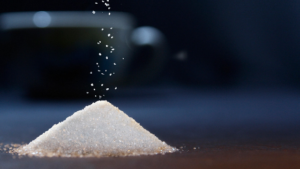Acid reflux or GERD (Gastrointestinal Esophageal Reflux Disease), as it’s sometimes referred to, is an uncomfortable and sometimes painful condition. It’s also a condition that is often dreaded by singers. While it can remain a minor health problem for some, acid reflux can reach the point of making it impossible for the vocal folds to function properly.

Photo Credit: Getty Images/iStockphoto
Changes to the Voice
When the acid from one’s stomach reaches the esophagus, it can cause heartburn and sometimes even chest pains. Acid reflux reaching the larynx does not necessarily cause pain, but it can cause significant damage. It may manifest initially as hoarseness, but if left untreated could result in long term issues.
The esophagus can withstand some acidity, but the larynx is much more delicate and cannot tolerate acid even in small amounts. The results of acid exposure to the larynx can include hoarseness, longer warm-up time, and decreased range.
Artificial Sweeteners and Acid Reflux
You might be wondering whether acid reflux and artificial sweeteners have any relationship with each other. Well, they do! Artificial sweeteners have a lot to do with making acid reflux much worse and may even be among the initial causes of reflux. Artificial sweeteners including Saccharin, Aspartame, and Sucralose can wreak havoc on one’s gut flora.
One study published several years ago determined that rats given high amounts of Splenda had a decrease of as much as 50% of their beneficial bacteria. When gut flora is destroyed, both good AND bad flora fall victim.
An Australian physician, Dr. Barry Marshall, who pioneered much of the initial research on acid reflux, discovered that the bacterium Helicobacter pylori caused inflammation in the gut lining. This inflammation has been demonstrated to be a major contributor to acid reflux.
When the delicate microbiome in one’s body is disturbed, destructive and pathogenic bacteria are allowed to proliferate. In other words, the artificial sweetener may destroy both the good and bad bacteria, and then allow the bad bacteria to take over with deleterious effects.
Singing and Reflux
I used to drink diet soda nearly every day. I also used to struggle with chronic acid reflux. I took prescription acid blockers and then switched to to the over-the-counter medications. The connection between artificial sweeteners and acid reflux became clear for me really by accident. I had decided that I was going to quit soda completely, including diet soda. Within a few months, I noticed that I no longer had any reflux symptoms. It’s now been over a decade since taking any GERD medications and I have not had a recurrence of symptoms.
Advertisement (article continues below)

I noticed that this one small change in my diet resulted in big changes for my health. I no longer needed to take medication, and my singing improved. It was a small price to pay, but it certainly yielded big results.
Alternatives to Artificial Sweeteners
There are ways to wean off of diet drinks and soda completely if that’s the desire. Here’s a simple recipe to get started.
Lemon “Soda”
½ lemon
8 oz of carbonated mineral water
1 tsp of SteviaMix all ingredients well. Leave room at the top of the glass because the mixture foams up significantly.
I wish you all health and peace, especially during this winter season.
Sources:
www.ncbi.nlm.nih.gov/m/pubmed/18800291/
www.webmd.com/digestive-disorders/h-pylori-helicobacter-pylori



